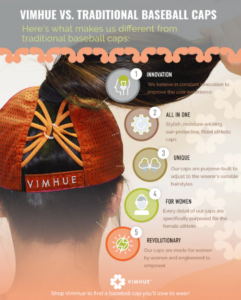Trader Joe’s is known as a chain of neighborhood grocery stores that is ” committed to providing our customers outstanding value in the form of the best quality products at the best everyday prices” (traderjoes.com). But many do not know the story of how this chain came to be.
As a recent graduate from Stanford in 1958, Joe Coulombe began working for a large retail pharmacy chain and was tasked with creating a new line of convenience stores. After successfully creating a chain of 6 “Pronto Markets” in South California, Coulombe was instructed to shut the markets down. But instead, he took out a loan and bought the stores himself. However, competition began to move into the Southern California area, and, instead of trying to compete head-to-head with Seven-Eleven, Coulombe came up with a way to differentiate his stores. So instead of carrying the same boring American food that most grocery stores carried he focused on a mix of interesting tastes from around the world. Nailing that trend would turn out to be key component to his success.
Today, Trader Joe’s prides themselves in their process of selecting the products they carry: “Our buyers travel the world searching for products we think are exceptional and will find a following among our customers. To earn a spot on our shelves, each product is submitted to a rigorous tasting panel process, in which every aspect of quality is investigated in context of the price we can offer. If a product is assessed as an outstanding value, it becomes an essential part of the Trader Joe’s shopping adventure” (traderjoes.com).
Trader Joe’s is a great example of entrepreneurship, for, through Coulombe’s desire to provide a unique and value-filled experience, he created a truly unique experience in his stores and products that is thriving today.
 The Moki Door Step is a fairly simple product: it “hooks over the u-shaped latch in your car door and serves as a strong and comfortable step allowing you to easily reach the vehicle’s roof” (https://www.theengineblock.com/rightline-gear-moki-door-step-ingenious-product-american-success/). The couple launched their product on Kickstarter and quickly raised over $100,000 in support. After this success, Alyssa and Zach decided to pitch their product on Shark Tank, where they ended up selling their entire company for $3 million to Daymond John.
The Moki Door Step is a fairly simple product: it “hooks over the u-shaped latch in your car door and serves as a strong and comfortable step allowing you to easily reach the vehicle’s roof” (https://www.theengineblock.com/rightline-gear-moki-door-step-ingenious-product-american-success/). The couple launched their product on Kickstarter and quickly raised over $100,000 in support. After this success, Alyssa and Zach decided to pitch their product on Shark Tank, where they ended up selling their entire company for $3 million to Daymond John. At age 14, Bella Weems decided that she wanted to start her own business in order to save up money to buy a car by her 16th birthday. Beginning with $700, vintage glass lockets, various little objects to fill the lockets with, and a kiosk at the mall, Weems worked hard to get her business off the ground. After a year and a half, she decided to switch to a “direct sales model” in which the company sells the materials to independent sellers and receives a portion of the profits. The purpose of the lockets were to be unique to each individual so that they “could tell their own story with a locket.”
At age 14, Bella Weems decided that she wanted to start her own business in order to save up money to buy a car by her 16th birthday. Beginning with $700, vintage glass lockets, various little objects to fill the lockets with, and a kiosk at the mall, Weems worked hard to get her business off the ground. After a year and a half, she decided to switch to a “direct sales model” in which the company sells the materials to independent sellers and receives a portion of the profits. The purpose of the lockets were to be unique to each individual so that they “could tell their own story with a locket.”

